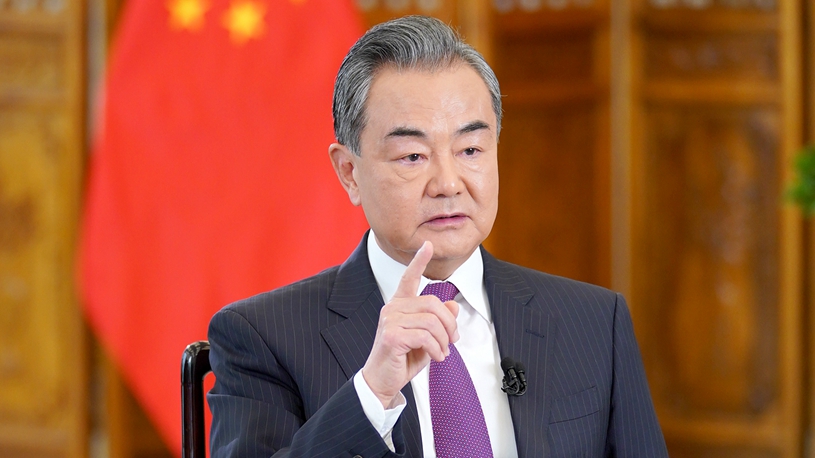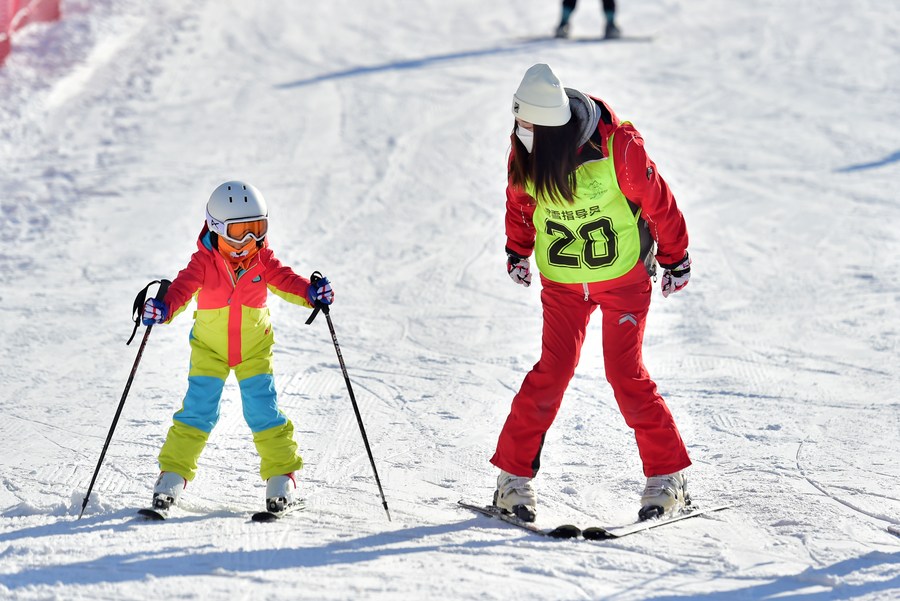
An instructor teaches a kid to ski at a ski resort in Shijiazhuang, north China's Hebei Province, Dec. 25, 2021. (Photo by Zhang Xiaofeng/Xinhua)
After winning the right to host the 2022 Winter Olympics, China has seen rapid growth in the skiing population, bringing significant benefits to the whole industry.
By sportswriter Ji Jiadong
BEIJING, Dec. 31 (Xinhua) -- With the Beijing 2022 Olympic Winter Games approaching, China's commitment to engaging 300 million people in winter sports is becoming a reality.
A dramatic increase in the skiing population has in turn contributed to a notable growth of the ski market. As a result, China's ski resorts are making their way to the world's top travel destinations.
SOARING SKI POPULATION
According to Wu Bin, vice director of the Beijing Ski Association, China's ski industry has developed rapidly since 2011, and the growth even accelerated following Beijing's successful Olympic bid.
"According to statistics, the number of skiers has risen from about 10 million in 2014 to more than 20 million in 2020, which is literally a 100 percent increase," Wu said.
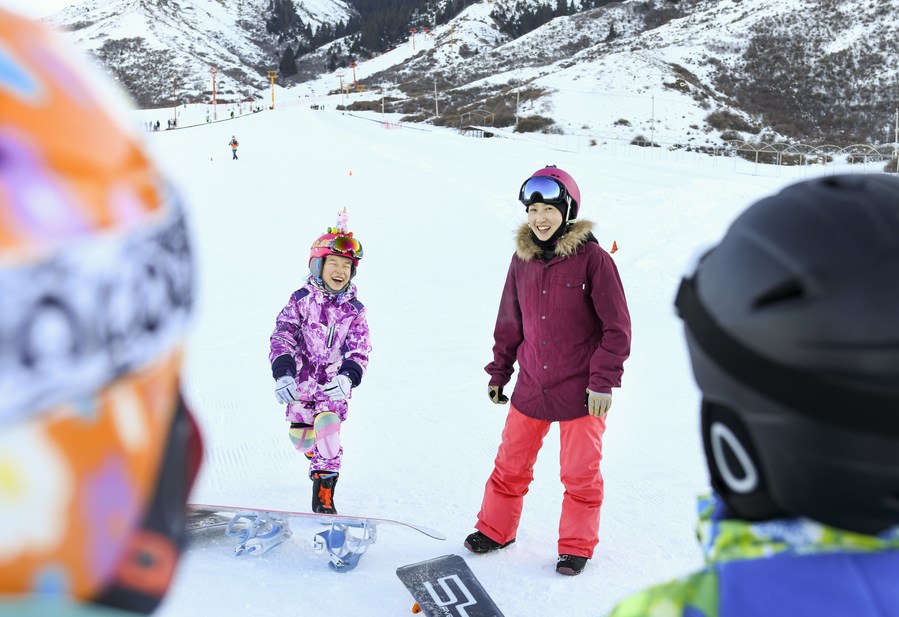
Snowboarding coach Xu Xiujuan (3rd L) gives instructions during a training session at Baiyun Ski Resort in Urumqi, northwest China's Xinjiang Uygur Autonomous Region on Jan. 27, 2021.(Xinhua/Wang Fei)
Xu Xiujuan, a 31-year-old Harbin-native, was once a professional skateboarder with the national team and settled down in Xinjiang to promote the sport as a professional coach after her retirement in 2019.
From then on, Xu has seen with her own eyes how fast the skiing population is growing. "Over the past three snow seasons, I definitely feel that the number of skiers is increasing faster and faster," she said.
"The free lessons we offer every weekend are packed with students. More and more children are signing up for snowboarding programs. Over the past two snow seasons, my team and I have trained more than 2,000 teenagers."
Jixue Ski Resort, located in Jilin City, northeast China's Jilin Province, has become the main venue for primary and secondary school students in the city to take skiing lessons in recent years.
"After winning the bid to host the Winter Olympics, there was an explosive increase in the number of skiers," said Liang Gang, general manager of Jixue Ski Resort.
"Before, our customers were mainly adults, but now we see a wide age range from three or four to 70 or 80, and teenagers have become the majority," he explained.
Wang Yuxiong, Director of the Sports Economics Research Center of the Central University of Finance and Economics, noted that the Winter Olympics has played a vital role in promoting and accelerating the development of China's ski industry.
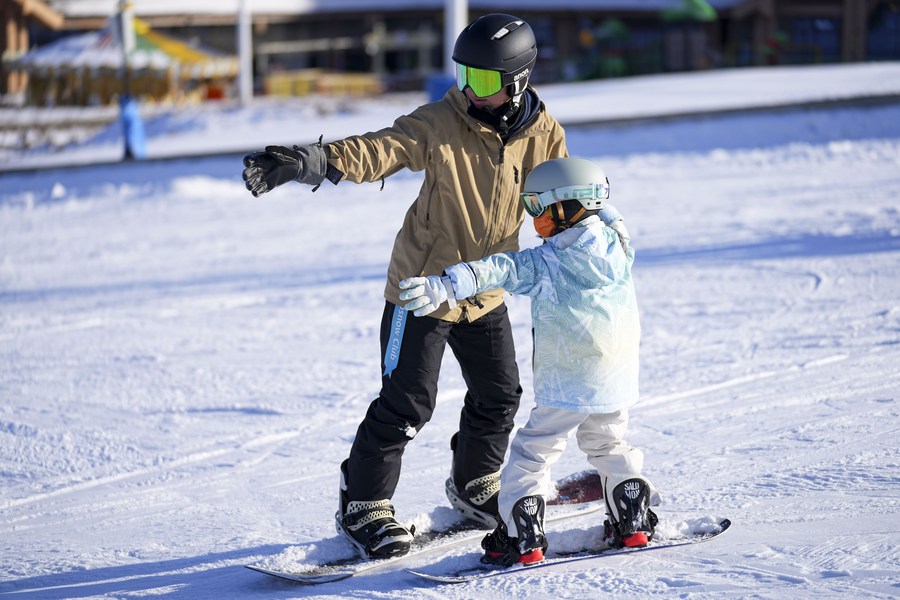
A child skies with the help of a parent at White Mountain Resort in Fusong, northeast China's Jilin Province, Nov. 19, 2021. (Xinhua/Xu Chang)
"The campaign to engage 300 million people in winter sports has vastly enlarged the Chinese skiing population, which is the basis and fundamental driving force of the development of the Chinese ski industry," Wang said.
BIG BRANDS ARE BOOMING
Li Longtai, executive vice president of Chongli Thaiwoo Ski Resort, witnessed the growth of Chongli, the largest high-end skiing industry cluster in China.
Li said that the number of guests using their own snowboards was less than 30 percent of the total when Thaiwoo Ski Resort opened in 2015, but currently, more than half of the guests bring their own gear. And the number of snowboarders has surpassed that of the skiers.
"They basically bring their own suits and helmets, and many of them are fashionable. Young people have become the major consumers, which indicates that the market has been diversified and the consumption-ability of the new generation has risen," he said.
Noticing the rapid development of the Chinese ski market, major European and American ski brands have also followed the trend. German brand Bogner announced that it will establish a joint venture with the Chinese brand Bosideng, planning to establish about 80 stores in China within five years.
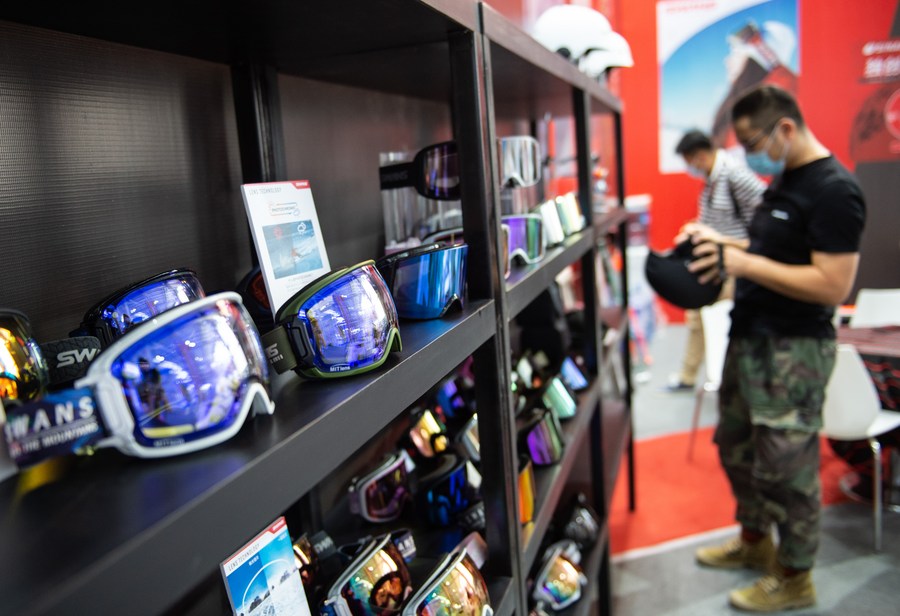
A visitor chooses ski helmets during the 2021 China International Fair for Trade in Services (CIFTIS) in Beijing, capital of China, Sept. 3, 2021. (Xinhua/Chen Zhonghao)
"As far as I know, foreign brands are very optimistic about the potential of China's ski market. I am afraid that any company with vision and ambition is unwilling to miss the opportunity," Wang said.
Wu stressed that from a global perspective, the ski markets in North America and Europe are developing relatively stably, while Japan and South Korea are in a downtrend.
"China's market is the only one with high growth, and it will contribute to the global increase," Wu said.
POST-OLYMPIC CHALLENGES AND EXPECTATIONS
The North American ski sports brand SPYDER started business in the Chinese market in 2019. It currently focuses on first and second-tier cities, opening franchise stores mainly in the local mid to high-end shopping malls. They also deploy a number of ski specialty shops in China's northeastern provinces where skiing is popular.
"The upcoming Beijing Winter Olympics has sparked people's enthusiasm for skiing, which benefits SPYDER a lot, as our revenue is rising steadily. We predict that the opening of the Winter Olympics can further ignite consumers' enthusiasm for skiing, and we hope that it will also 'detonate' our sales by then," said Zhang Weicheng, general manager of SPYDER China.
A large number of brands were attracted by the rosy future of the Winter Olympics. However, how the Chinese ski market can continue to develop healthily in the post-Winter Olympics time is of concern to many.
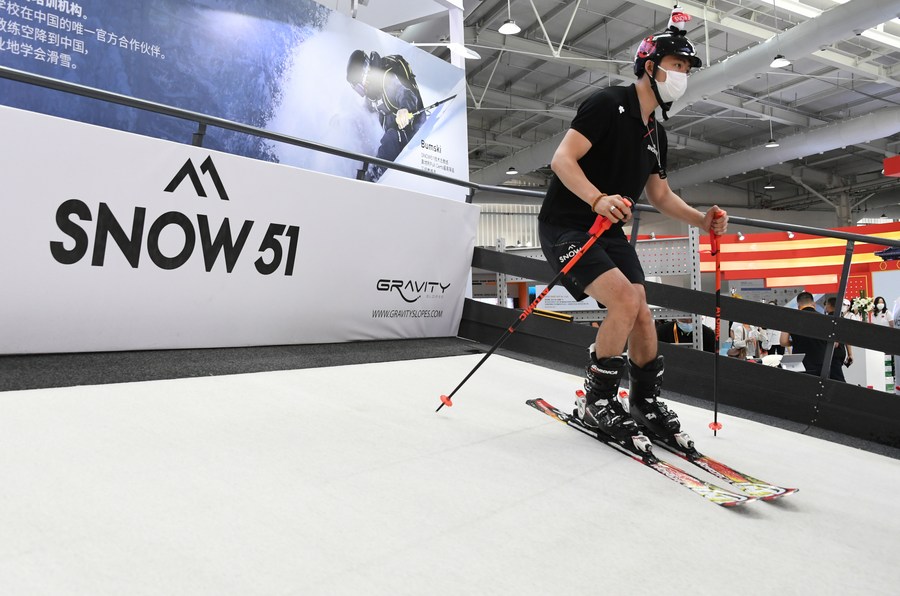
An exhibitor demonstrates a ski simulator during the 2021 China International Fair for Trade in Services (CIFTIS) in Beijing, capital of China, Sept. 3, 2021. (Xinhua/Ren Chao)
"I think the owners and operators of domestic ski resorts should adopt a global perspective to build into world-class ski resorts. Management must be upgraded to international standards and they should cooperate with international brands," said Jiang Yihai, vice chairman of the Heilongjiang Ski Association.
Wu believes that the market will return to its original state of development after the Winter Olympics, which means speculative capital may leave the market.
"We should make full use of the effect of the Olympic Winter Games to popularize the ski sport and cultivate professional talents," said Zhang Shouwei, Dean of the School of Physical Education of Northeast Normal University.
"In addition, we should strengthen comprehensive strategic planning of the industry and improve on the market-led system to promote the development of the entire industrial chain," he added.



